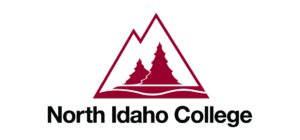
 As concerns mount over political influence in Florida’s higher education system, North Idaho College’s (NIC) turbulent journey through political upheaval and near-loss of accreditation serves as a stark warning of how partisan battles can threaten academic institutions.
As concerns mount over political influence in Florida’s higher education system, North Idaho College’s (NIC) turbulent journey through political upheaval and near-loss of accreditation serves as a stark warning of how partisan battles can threaten academic institutions.
“We found a board majority that was elected with agendas that they never shared completely. It was an agenda of chaos, not really conservatism,” explains Christa Hazel, a former school board member and NIC student body president. Hazel witnessed the transformation of her alma mater from a respected community institution to a battleground for political ideologies.
CHAOS ON CAMPUS
The crisis began in 2020 when the college’s diversity council issued a statement supporting social justice demonstrations following George Floyd’s death. This caught the attention of the Kootenai County Republican Central Committee, which then began endorsing candidates for the college’s technically nonpartisan board elections.
The resulting turmoil nearly destroyed the 90-year-old institution. A board majority, led by chairman Todd Banducci, who claimed to be fighting against a liberal “deep state” at the college, created a governance crisis that triggered multiple accreditation warnings and eventually led to a “show-cause” status in February 2023 – meaning the college had to prove why it should keep its accreditation.
“I’m a believer in transparency and accountability,” Hazel noted, “and there wasn’t transparency, and it was very difficult to get accountability using policies in place in hopes that board chairs would honor them. What we discovered is board chairs just didn’t honor policies.”
The financial toll was devastating. The college overspent its 2022-23 budget by more than $1 million, largely due to leadership turnover and skyrocketing insurance costs. After trustees fired President Rick MacLennan without cause, the college’s insurer dropped them, forcing them to find new coverage at more than double the cost – $1.2 million versus $515,000.
Hazel observed how external political groups contributed to the chaos. “The Idaho Freedom Foundation is the largest super lobby group in Idaho,” she explained. “They rate our legislators on an Idaho Freedom index… they’ve been effective in moving, marching our legislators farther right.” Meanwhile, what she calls “zombie papers” – propaganda websites – emerged to paint college defenders as “Biden-loving, DEI, Antifa fans.”
The situation threatened both the college and the broader community. “We realized our community college brought in $60 million into the economy,” Hazel noted. “If we were to lose accreditation and not be able to get back, that started to look like akin to a natural disaster.”
According to Inside Higher Ed, the situation began to improve around May 2024 when trustee Mike Waggoner emerged as a swing vote, leading to more normalized board meetings. The transformation accelerated when Banducci and Waggoner chose not to seek re-election, and McKenzie lost his re-election bid.
CONSERVATIVE REPUBLICANS FIGHT BACK
Hazel emphasized that the crisis wasn’t about traditional conservative values. “I’ve been a lifelong conservative,” she said. “I affiliate with North Idaho Republicans because I don’t affiliate with some of these crazy groups. Why? Because in my view, they have some views that just are too far for me or something that I don’t believe are reflective of my community.”
The case has relevance for Northwest Florida, where similar dynamics are emerging at institutions like the University of West Florida and New College of Florida. As Hazel observed, “Elections have consequences, and unfortunately, it sounds like you’re starting to go through that.”
The toll extends beyond immediate costs. Enrollment declined, with tuition collections falling $500,000 below projections. Staff turnover exceeded 18% in 2021-22, nearly tripling over three years. Donor support plummeted, impacting scholarship availability and program support.
“You want members of your community that really understand your community, that are looking out for your community when they’re in these leadership positions,” Hazel emphasized, “as opposed to thinking tank groups and people who just newly relocated and they’re running from something, but they won’t tell you what.”
As NIC awaits its final accreditation decision, expected within 30 days of the January meeting, its experience stands as a warning about the real costs of political interference in higher education. While the institution appears to have pulled back from the brink, the damage to its finances, reputation, and community trust will take years to repair.
“If DEI is a problem in a university, show where it is and be willing and courageous to have a community discussion,” Hazel concluded. “Rational people just say, what’s the plan? And when others don’t offer that in a rational way, equally rational way of thanks for asking, this is what we see, and this is how we’d like to handle it… that’s also the problem.”
Featured Photo: Licensed under Unsplash license



